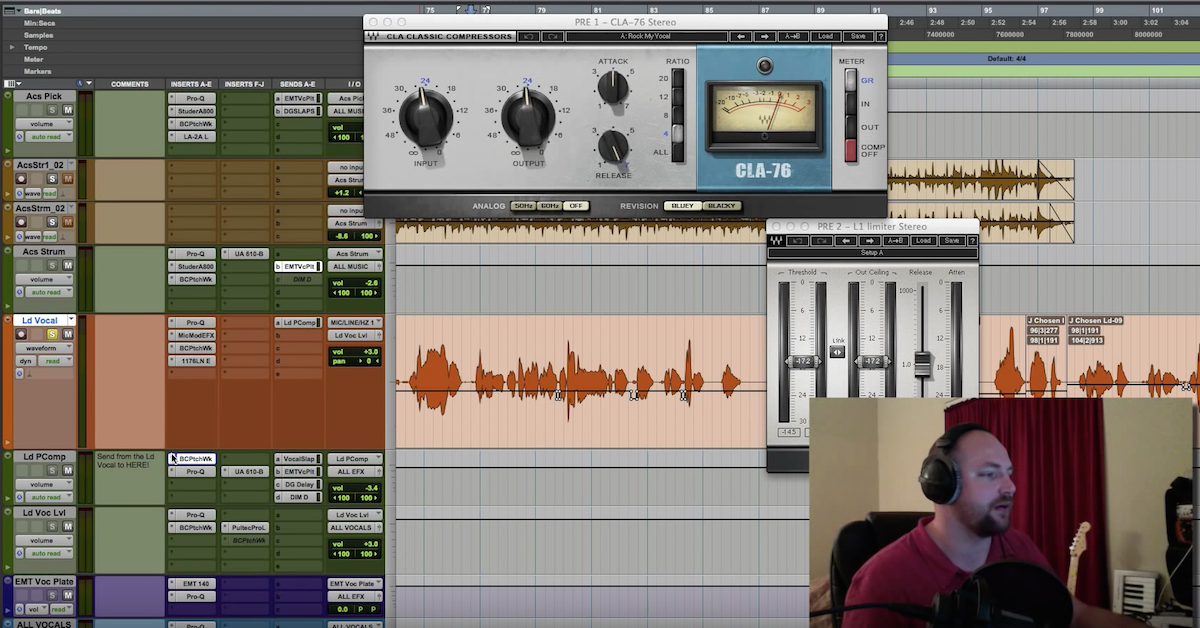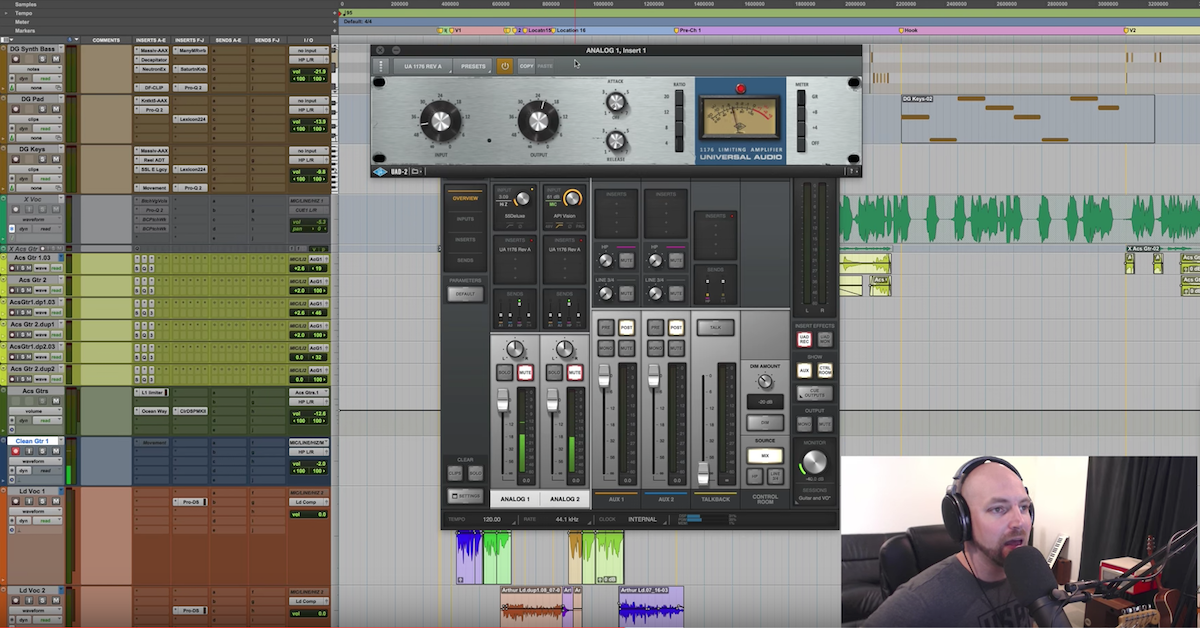Universal Audio Apollo from a Recording Perspective
Article Content
There’s a lot of buzz around Universal Audio’s Apollo devices right now. There’s a good reason for this. It’s not just marketing hype.
A lot of the buzz is coming from engineers and producers actually using the Apollo. It’s completely revolutionizing the digital recording medium.
For the purpose of this blog, I’m going to focus on tracking with the Apollo Quad. There are plenty of people talking about mixing applications. It’s pretty clear how it excels here.
Tizzy
What blew my mind was how it allows me to be a <gasp> engineer in the digital medium. Before anyone gets in a tizzy, let me explain.
When we record in nice big studios, we can use a lot of outboard gear before we hit the converters. Mic preamps, EQ, compressors, tape, etc. — A signal often kisses one of those before settling down with digital conversion. (Everyone has to have a few wild college years).
Underdog
Recording in this manner without having actual analog gear was impossible before. Those of us with mobile or small setups were at a major disadvantage. It was like an audio arranged marriage.
There was a lot of “green screen” engineering going on. It was very frustrating getting sounds and designing great monitor mixes. We’d have to do a lot of guesstimating and sacrificing.
Commitment
I’m an effects printing kind of guy. Mostly it’s subtle use. A dab of EQ here or there. A touch of compression. You know, I like to make it sound good.
In the UA Console app, I can pull up a Neve 1073 preamp and run that into the Studer A800. The controls react just like the real deal. This means hours of fun with gain staging.
Those of us that spent a lot of time with real gear use various points of gain staging as a tone shaper.
zBlood Shot Adult Commitment
Once I get the sound I want, I can print the track with all the effects. But …What if …
For me there are no what if’s. That’s exactly how I would work if I had a Neve console and a Studer. The great thing is once I get a sound and print the track, I never have to worry again.
Set it and forget it. I won’t be hogging any DSP down the line either. I suppose to some degree this means one has to learn to be a real engineer.
Them Is Fightin’ Words
What is a real engineer? One that knows how to read meters for one thing. If you’re using the Studer A800, you have to be aware how hard you’re hitting the tape. Just like in a real session.
It also means you have to learn how to use compression. Compression is like a 15-year scotch. You savor it in small amounts. Often people treat compression like a case of PBR. Including forehead beer can crushing.
But, if in the event that you’re a scaredy pants, you don’t have to print the effects. It’s ok, you’ll be a grown up someday.
Can You Hear Me
One way to ruin someones great afternoon in the past was to set them up with a digital monitor mix. Nothing makes me frown like a monitor mix from an MBox.
I’m not saying every monitor mix was horrible. Some were ok. But, something was always missing. It was rarely inspirational. Seldom was the case where you could make it sound like it would in the end.
I can’t tell you how many times I’ve had to explain to artists that it will sound better after we record it.
Relief
Enter the Apollo. Monitoring effects with incredibly low latency is a real dream (I’m sensitive to latency and I don’t feel it). Again, this was only a reality for those lucky PT HD owners.
I’m not even getting into the routing flexibility in UA Console (you should dig into that as well). I’m simply talking about the sound quality. I can get a monitor mix that will make any vocalist joyous. This inspires better performances.
Band on the Run
The mobile accessibility of the Apollo is amazing. I like recording in non-traditional studio locations. I recently went to a house in the country to make a record.
I can simply pack up the Apollo Quad and I have almost everything I need. I don’t need a rack of preamps. I can make a record with one box.
Some are going to argue that you could do this before. Sure, you can make a record with anything. But nothing allowed me to track a record in digital like I do in an analog studio.
I can’t believe I’m going to say this, but I think the great digital hurdle has been jumped. If you need to record digital but like analog recording techniques, this box will do it.






